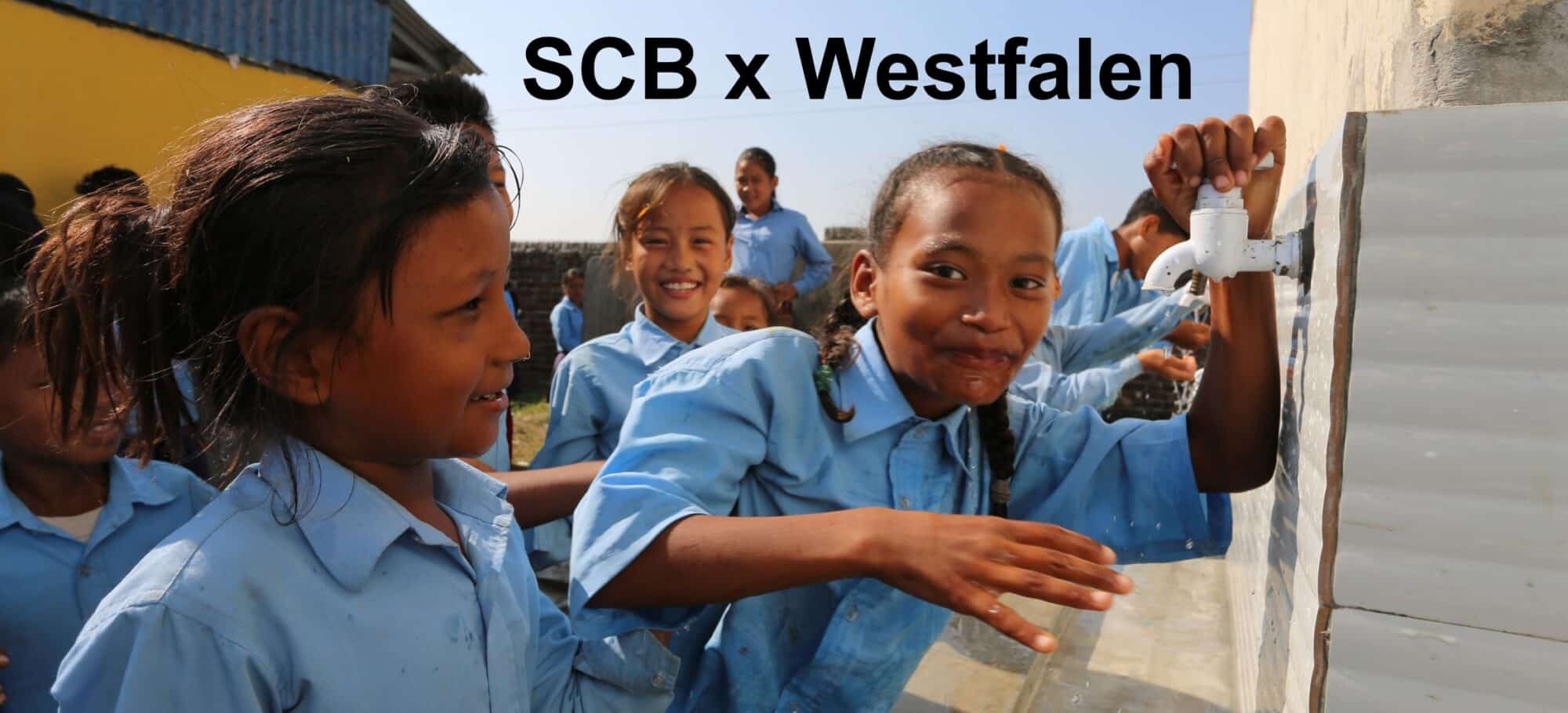In a commendable stride towards environmental stewardship and public health, the Westfalen Group, renowned for its widespread influence in technical gases, energy solutions, and healthcare, has pledged its support for the SCB-financed clean drinking water initiative in Nepal. Westfalen’s commitment stems from the company’s innovative internal competition, ‘Headventure,’ which encourages employees to propose groundbreaking ideas for sustainable development. The initiative goes beyond immediate health benefits, safeguarding local forests as carbon stores, and contributing to the larger fight against climate change through the creation of marketable climate protection certificates.
“As a company, we are ambitious in doing our part to solve the climate crisis and have already taken steps to avoid and reduce emissions. But despite many measures, they cannot yet be completely avoided,” states Christin Wessels, Sustainability Manager at the Westfalen Group.
As part of the Headventure team, Christin investigates ways to compensate for CO2 emissions. The concept was to increase the influence and transparency of climate protection projects invested in by the Westfalen Group. SCB Group was selected due to the many years of expertise in the development and implementation of climate protection projects. “It is a competent partner that knows the local social and political situation,” says Christin.
Through the project, around 400 institutions in Nepal are supplied with water purification units, resulting in treated drinking water for local households and communities. The focus is particularly on equipping schools with sanitary facilities. Local project implementing partners also educate children about hygiene. The water treatment system is monitored and maintained by locally trained residents.
Kevin McGeeney, CEO of SCB Group, reflects, “We are pleased that the Westfalen Group is supporting this project, which not only contributes to environmental protection, but also improves health and prosperity through the provision of clean drinking water. The project leasds to a reduction in the incidence of waterborne diseases and improves equity and properity.” Baseline studies show that women would spend up to one day a week collecting firewood in order to cook on a slow-burning and smokey traditional fire.
The profound implications of the project are evident in the testimonies shared by those on the ground. “When our colleagues at SCB visited the safe drinking water project in Nepal recently, they witnessed firsthand the transformative impact this project has had on schoolchildren, households, institutions, and communities,” shares Juliette Vidal, Senior Trader at SCB Carbon Desk. “Improved access to clean drinking water translates into less time spent being sick, which directly correlates to more time spent in school, reduced absenteeism from work, and financial savings from medical expenses”, she says.
Living conditions and health are significantly improved in several respects. Boiling water is no longer necessary, the need for firewood is reduced and the forest is protected as a carbon store: All of this saves carbon dioxide. In the form of credits, these reductions can be marketed as certificates on the voluntary emissions market. The project meets strict verification criteria, and is certified by the Gold Standard as supporting Sustainable Development Goals in addition to combating climate change.
“With the climate protection certificates, we can also effectively support our stakeholders on the path to sustainable progress,” explains Executive Board member Dr. Meike Schäffler, emphasizing, “We don’t see sustainability as a one-off action, but as a holistic and ongoing process, a constant learning and development.”
About Westfalen
The Westfalen Group is active in the fields of technical gases, refrigeration and heating, service stations and mobility, and respiratory home therapy. Founded in Münster in 1923, the family-owned company is now represented by numerous subsidiaries and affiliates at over 20 production sites in Germany, the Netherlands, Belgium, France, Switzerland and Austria.
Related content
‘The SCB Approach, Carbon projects visit demonstrates high levels of integrity, impact’



